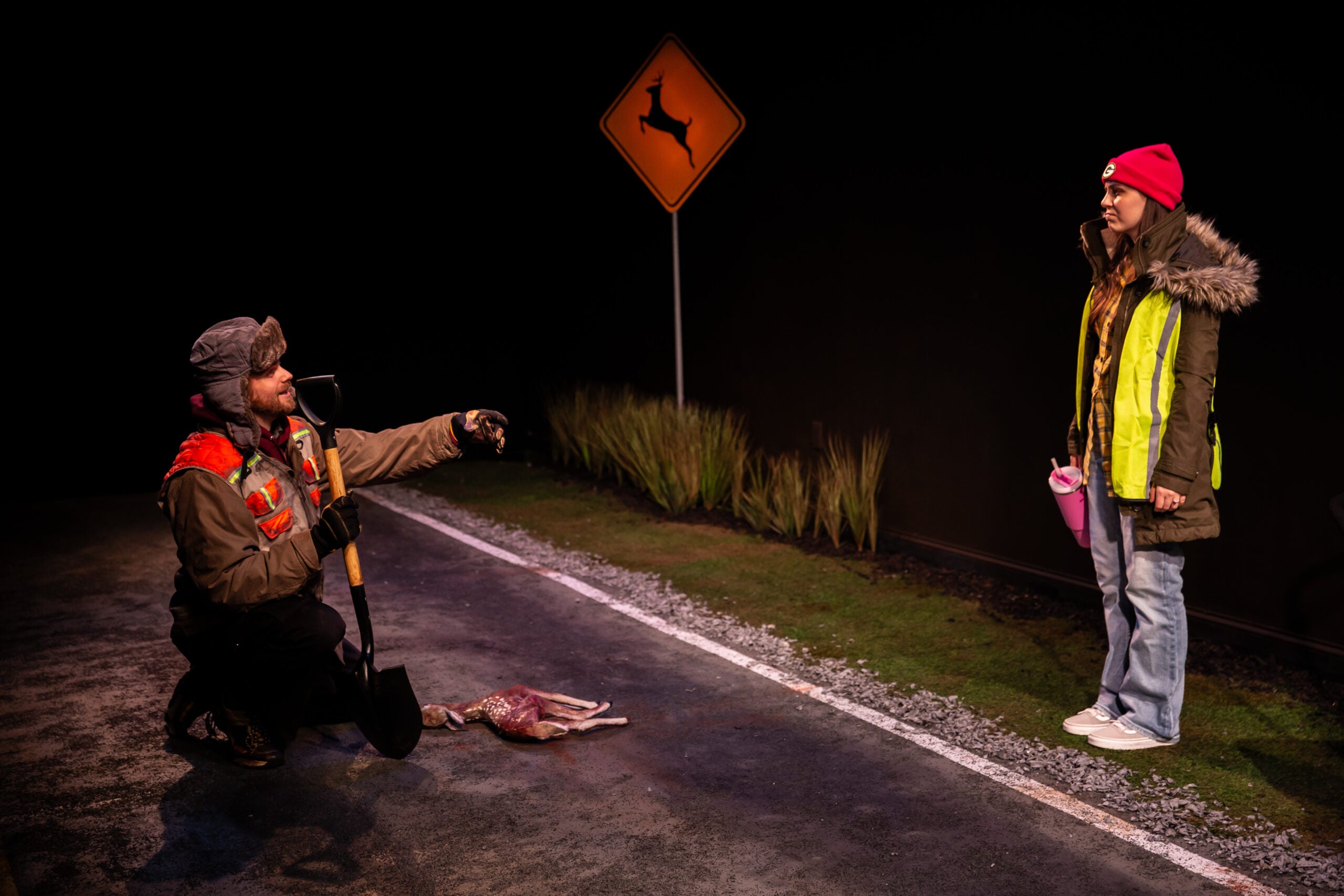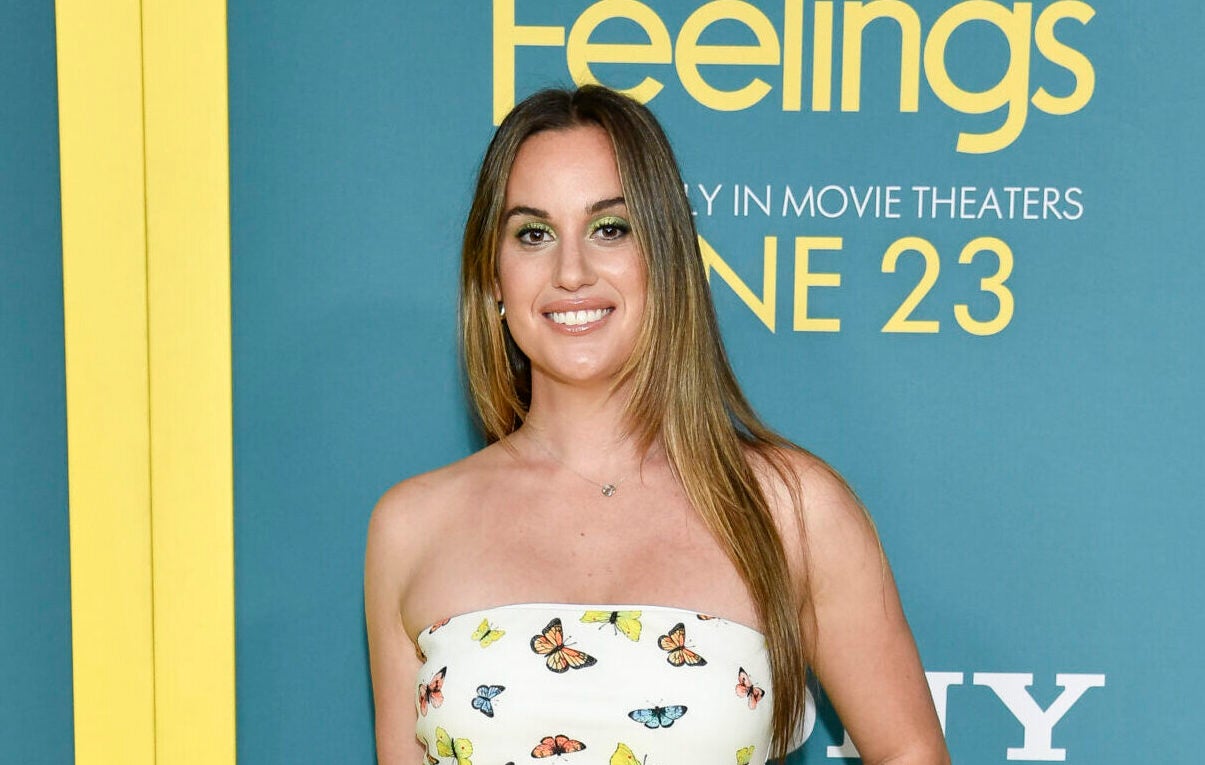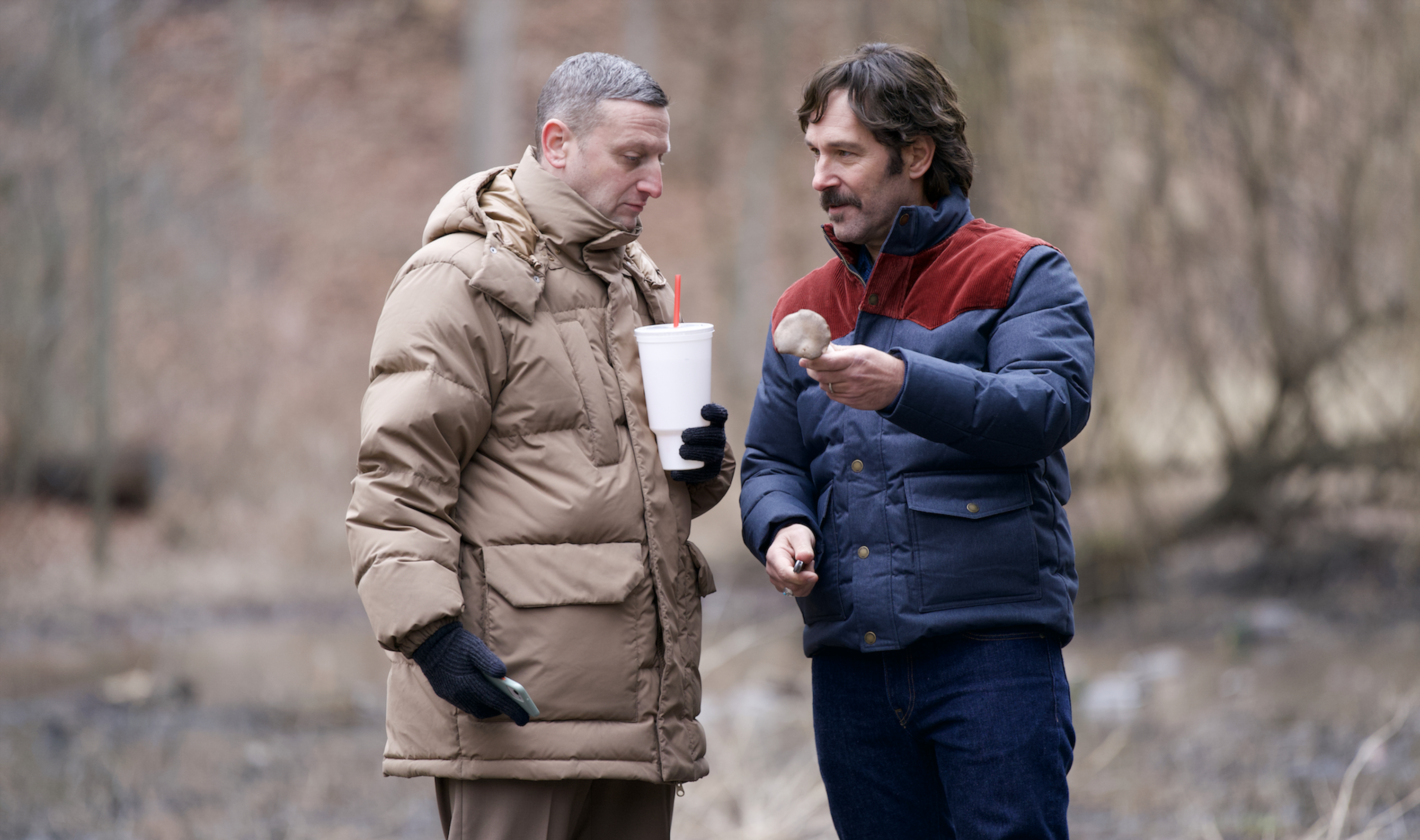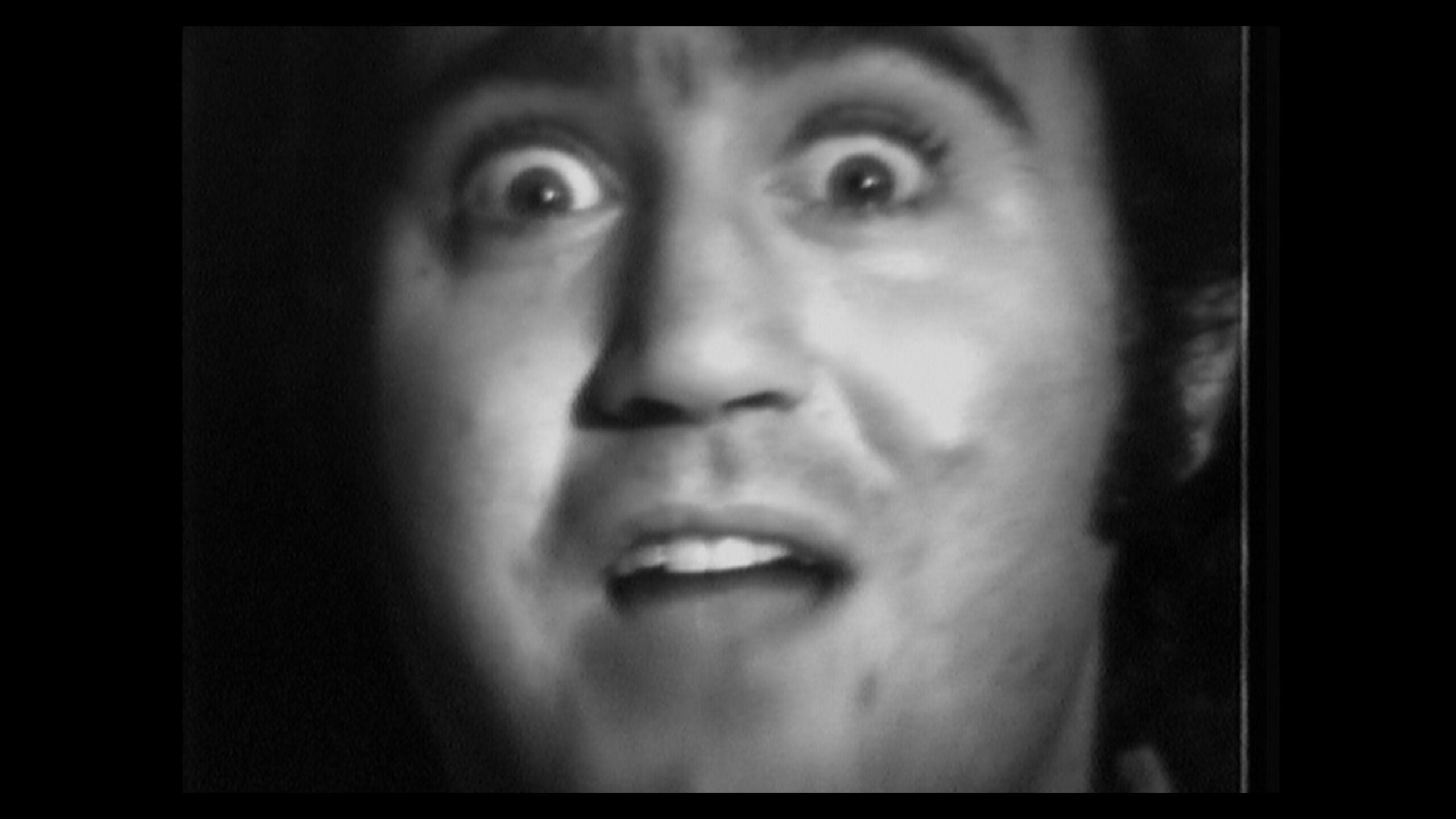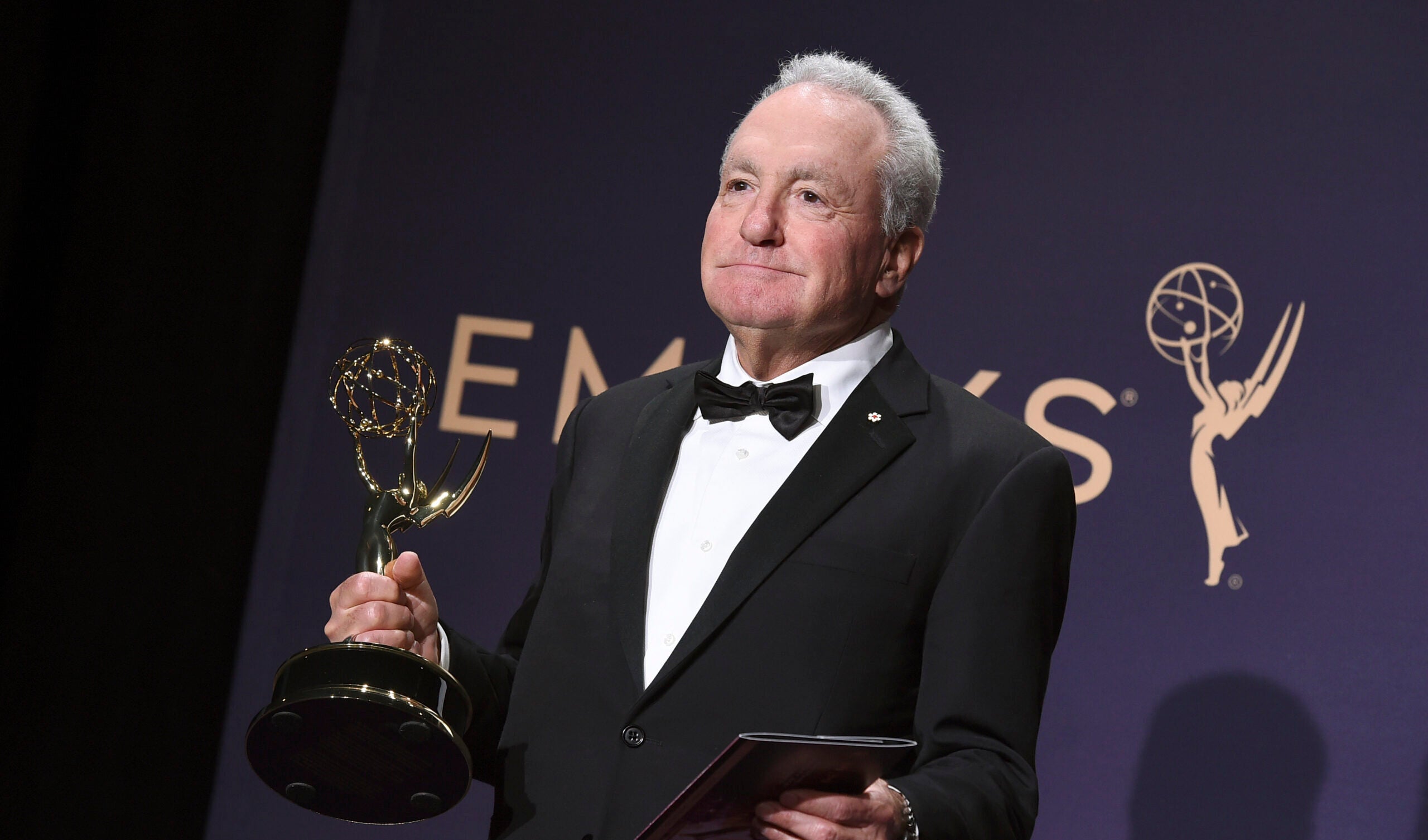In the summer of 2023, Julia Masli performed at the Edinburgh Fringe Festival. She won best show at the Comedians’ Choice Awards for her Fringe show.
Masli thought she was being pranked because she considered her show to be a serious one. But it was no prank. Or was Masli pranking everyone else?
After all, her show is called “ha ha ha ha ha ha ha.” And she did attend a clowning school in France, the very same clowning school that Sacha Baron Cohen attended.
News with a little more humanity
WPR’s “Wisconsin Today” newsletter keeps you connected to the state you love without feeling overwhelmed. No paywall. No agenda. No corporate filter.
Masli was born in Tallinn, Estonia. She originally wanted to be an actor. But she didn’t land any role because of her accent. So, she decided to perform comedy because that’s what her friends were doing. And along the way, she discovered a new gig — offering advice to her audience members.
Does this mean that Masli is the Anne Landers of comedy? It’s a little more complicated than that. She gets into it with WPR’s “BETA.”
The following interview has been edited for clarity and length.
Doug Gordon: When you were a teenager and living in London, you wanted to become an actor. How did that go?
Julia Masli: I figured out that whenever I did perform, I was an immigrant here, so my English wasn’t perfect. So I usually was cast as playing someone that didn’t have much to say but brought a lot of joy to the stage. I was someone that was doing a lot of movement. I figured out that I need to go the physical route, so I ended up doing clowning.
DG: And you studied under a clowning instructor. Can you tell us about that experience?
JM: Yeah, I studied under Philippe Gaulier in France in this old 18th-century town. He is very brutal but full of love. He was always pushing us to perform to the best of our ability, which is very, very hard.
But he never settled for anything less than that. So it’s a lot of insults because we’re never as good as we can be. Maybe once a year, you will finally say, “It’s OK. We accept, we bite.“
DG: Last year, you were the surprise hit of the Edinburgh Fringe Festival. How did you react when your show was nominated for the Edinburgh Comedy Awards?
JM: I couldn’t believe it. I thought I was being pranked by my partner and by everyone because the show that I brought to Edinburgh was a work in progress in my head. And the following year, I’ll bring the full thing.
So to me, it was just an absolute shock and also a huge learning lesson, because sometimes the thing that you don’t think is finished is more raw and more alive than something that you know, you think you’ve perfected. And this is the final product. So it really taught me a lot.
DG: I want to make sure I’m right about this. You don’t really consider yourself a comedian, do you?
JM: No, I don’t. Everyone has been labeling me as a comedian. And, you know, in my heart, I’m just solving problems.
DG: There’s a little more to it than that because, from what I’ve read, you think of yourself as kind of the opposite of a comedian, correct?
JM: I love tragedy. And at its core for me, this show is about people, people’s problems, people’s views, their sadness. What makes it hard for us to keep going?
What is stopping us from being the best versions of ourselves every day? It’s a show about that and how we can face these things.
And it’s about people’s vulnerabilities, people’s beautiful weaknesses. So I care about that a lot. And I’m trying to solve all of these ongoing problems, and people are finding it very funny. But to me, it’s about the tragic element of it.
DG: It’s really cool that you do that. The way people describe you in the press is that you’re the comedian who offers advice to help solve your audience’s problems. But maybe we should say that you’re a tragedienne with a really good sense of humor who solves people’s problems. Does that work for you?
JM: Thank you. Doug, I really wish you could be my producer. You’re really good. You got to the point.
DG: Oh, thank you. That’s very high praise, especially coming from someone as talented as you. So let’s get into this. You have this great idea you came up with of helping to solve your audience’s problems. How did you start doing that?
JM: I just saw that the world, that everyone was struggling with something. I constantly have problems every day that I have to overcome, so I thought, I need to try to fix everything. Right now. It’s just, you know, it’s everywhere, and you just have to. I just thought, “Oh, go out and start fixing things.”
And then I saw that other people during my show actually started fixing each other’s problems during my show, and that was great. So in a way, I’m glad that I set out to do that. I just thought, “I’ll do it and then maybe someone else is going to join me.”
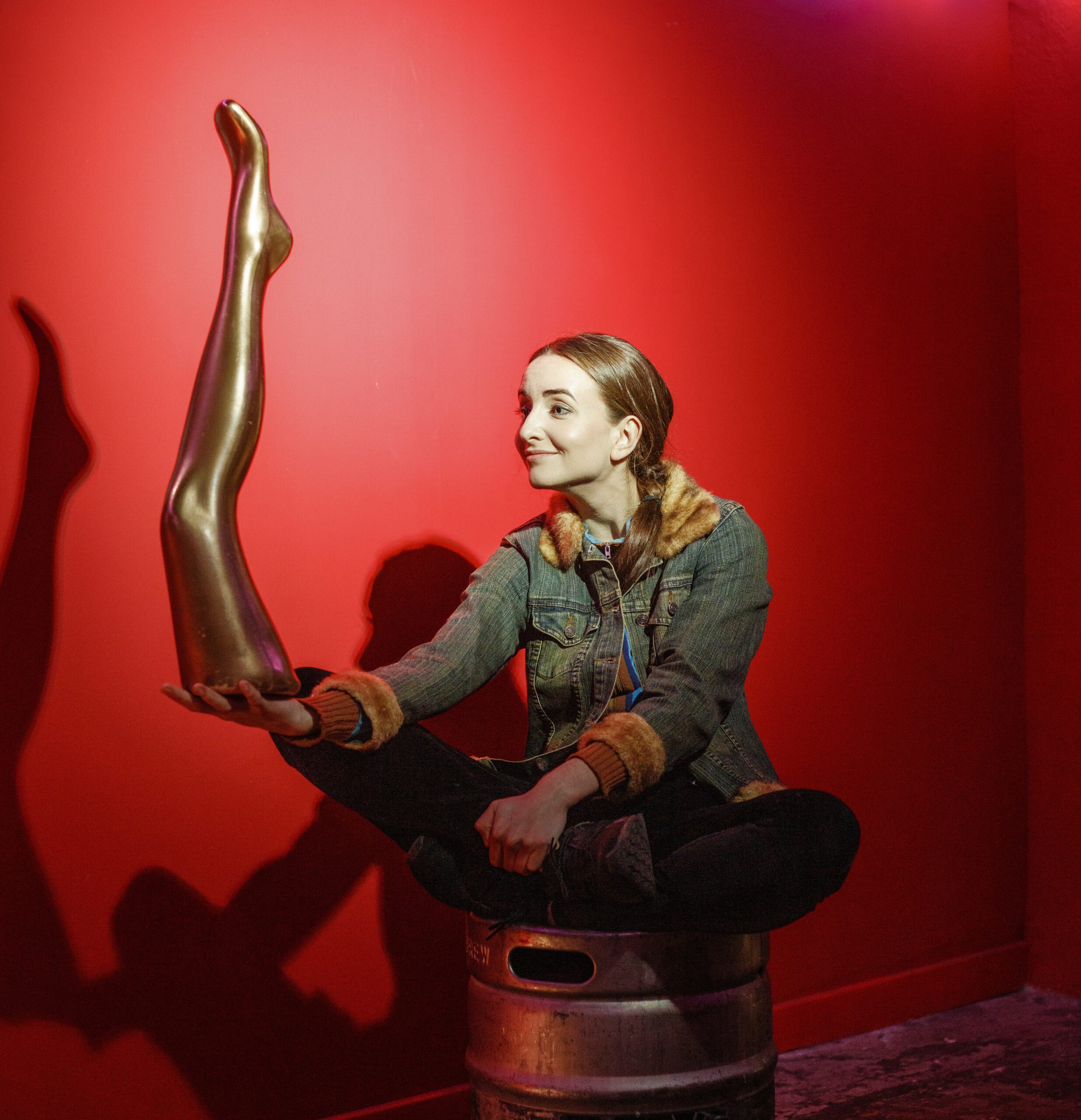
DG: You’re bringing people together, which is great. That’s fantastic that you’re doing that. What do you think you have learned about people from helping them solve their problems?
JM: I learned that there is so much kindness and love and beauty in people that actually we don’t know about because when we watch the news, we are always like, “This is horrible.”
What are we doing to the planet? What are we doing to each other? But what I’ve learned doing the show is that there’s actually so much wonder and magic in people.
Someone will share something and then someone else will say, “I have a spare room you can have.” There are so many beautiful people who are so generous, and also the vulnerability just really moves me.
And I feel like because people share things with me, I feel seen, too, in my own problems. I feel connected. I guess it’s made me have more faith in us, actually, because I think that there’s a lot of good — enough that we don’t share as much on the news for some reasons.
DG: Yeah, that’s beautifully said. Thank you for saying that. You’re going to be at the Soho Playhouse in New York City for a residency. How different do you think the problems you’ll get from Americans will be from the problems that people in Scotland and Australia have shared with you?
JM: It’s such a good question. I can only predict. I have no idea. But what I do know is I’ve had American audiences in Edinburgh.
And they also — I think it’s just me because I am foreign — but I think they have a really good voice. They speak very clearly. And I always appreciate that because, the show’s very sonic and the voices kind of create the atmosphere.
I’m always so happy when someone speaks clearly. It’s just such a simple thing. But people tell me, “Oh, people are going to open up so much. We’re going to tell you everything.”



